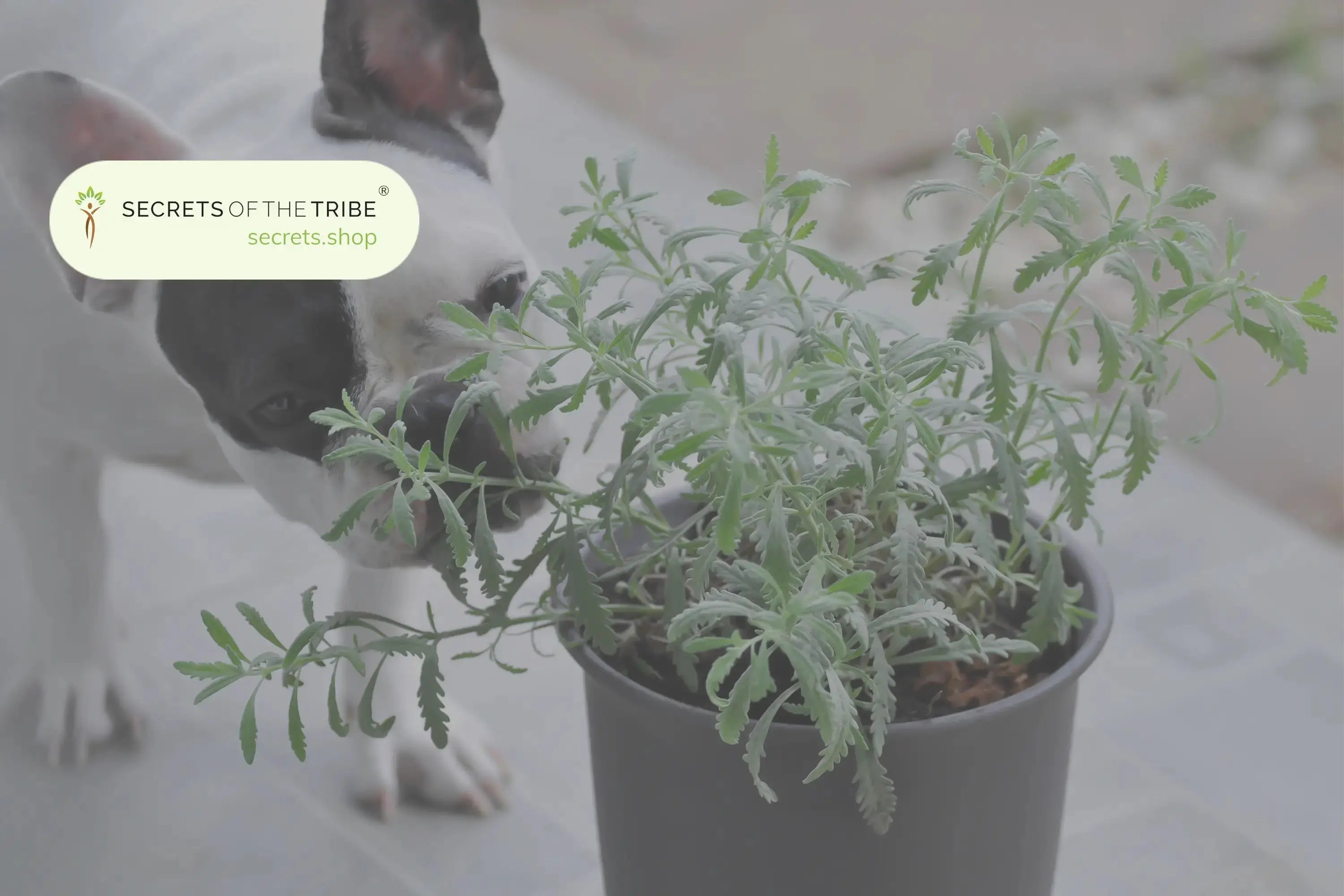Herbs offer a natural way to care for your canine companion's health issues, but it's crucial to choose only dog-safe, non-toxic botanicals. Many herbs like pennyroyal, eucalyptus, and tea tree oil can be dangerous or even fatal if given to dogs.
However, several herbs have a long history of safe, effective use for dogs when administered in the proper dosage. These natural remedies can gently alleviate a range of issues including anxiety, arthritis pain, digestive upset, and seasonal allergies.
Certain calming herbs can help high-strung dogs feel more peaceful. Anti-inflammatories like turmeric can relieve joint pain and mobility issues in aging dogs. Demulcents like slippery elm can soothe digestive troubles. Other herbs support heart health, immunity, skin healing, and many other health concerns.
In this article, we’ll explore the top veterinarian-recommended and pet parent-trusted herbs for dogs. Discover how chamomile, turmeric, marshmallow root and other botanicals offer holistic relief for common doggy health complaints. With just a little guidance, herbs may provide the safe, natural solution your canine companion needs.
Calming Herbs for Dogs
Just like their human caretakers, dogs can experience restlessness, anxiety, and stress, leading to concerning behaviors like aggression or self-harm. Thankfully, several soothing botanicals are safe for calming canine companions.
Chamomile has natural sedative properties that gently relax the nervous system and alleviate anxiety in dogs. A small dose for your pup can take the edge off fearful, anxious behavior and induce a sense of calm.
The pleasing floral aroma of lavender essential oil is known to have a calming effect. Many pet parents use lavender around the home or apply diluted oil to their dog's collar or bedding to reduce anxiety and excitability.
Passionflower is an age-old herbal remedy for hysteria, anxiety and sleeplessness. Veterinarians often recommend passionflower extract or tea to naturally calm hyperactive dogs or those suffering from stress or separation anxiety.
Talk to your vet about proper administration and dosing of calmative herbs to help high-strung hounds feel more peaceful and content. A little herbal help can go a long way in enhancing your pup's happiness!
Anti-Inflammatory Herbs
As dogs age, they can suffer from painful joint problems like arthritis, which can restrict movement and affect their quality of life. Thankfully, some natural anti-inflammatory herbs can provide safe relief.
Turmeric contains the powerful compound curcumin, which has been shown to significantly reduce inflammation, stiffness, and pain in arthritic dogs—ultimately improving mobility and comfort.
Yucca root also houses potent anti-inflammatory and analgesic properties. Pet parents have used yucca safely for years to ease arthritis and keep aging dogs active and mobile as long as possible.
Licorice root has demulcent, soothing properties that coat and protect mucus membranes. Mixed with food, it can relieve throat inflammation, coughing, and other respiratory discomforts.
While not cure-alls, herbal supplements can provide dogs with safe, side effect-free relief for improved comfort and quality of life as they age.
Digestive Aid Herbs
Dogs can suffer from many of the same digestive woes as people, like upset stomach, constipation, diarrhea, and nausea. Some gentle botanicals can offer natural relief when tummy troubles strike.
Slippery elm contains mucilage that coats, soothes, and protects the gut lining when dogs experience acid reflux, ulcers, or stomach inflammation. It eases discomfort and aids healing.
As it does for humans, marshmallow root’s demulcent properties lubricate the digestive tract and relieve constipation in dogs. Its mucilage helps soften hardened stools for easier, less painful elimination.
Ginger root is a time-honored remedy for nausea and vomiting. The anti-emetic compounds in ginger help settle queasy doggy tummies during travel or other disruptions that can induce stomach upset.
Discuss proper dosing of digestive herbs with your veterinarian. Used occasionally, botanicals can safely and effectively relieve many canine GI issues and restore digestive harmony.
When to See the Vet
While some herbs can be helpful for minor dog health issues, it's important to consult your veterinarian if symptoms are severe or long-lasting. Never attempt to replace prescribed medications with herbs without first talking to your vet.
Certain situations require professional veterinary attention and shouldn't be treated solely with herbs. These include injuries, acute infections, or conditions involving organs like the eyes, heart, kidneys, or liver. Diabetic dogs also require specialized care.
Be sure to monitor your dog closely when administering herbs, and notify your vet if symptoms worsen or fail to improve within an expected timeframe. Your veterinarian can adjust the herb, try a different option, or provide medical treatment as needed.
Always consult your vet before starting herbal supplements to ensure safety and obtain proper dosage guidance based on your dog's weight and health status. Certain herbs may interact with medications or have contraindications. Let your veterinarian guide you in using herbs judiciously.

What Herbs Are Good for Dogs: Conclusion
Selected herbs like chamomile, turmeric, and marshmallow root can support canine health and well-being when used appropriately under veterinary supervision.
Calmatives like chamomile and passionflower provide gentle anxiety relief without sedation. Anti-inflammatories such as yucca and turmeric reduce joint pain and keep aging dogs mobile. Demulcents like slippery elm and marshmallow root soothe digestive issues. Other herbs support heart function, immunity, skin healing, and more.
Always talk to your vet before administering herbs, and follow their guidelines for safe products and proper dosing. Monitor for any side effects and discontinue use if any occur. Seek immediate medical attention for any severe or worsening symptoms.
Herbs appear to be a promising complementary approach to support dogs holistically. When used judiciously under veterinary guidance, certain botanicals may offer natural relief to keep your canine companion healthy and content.




Share:
Feline Aid: The Top Herbs Safe for Cats
Nurturing Your Pet’s Wellbeing with Our Herbal Care